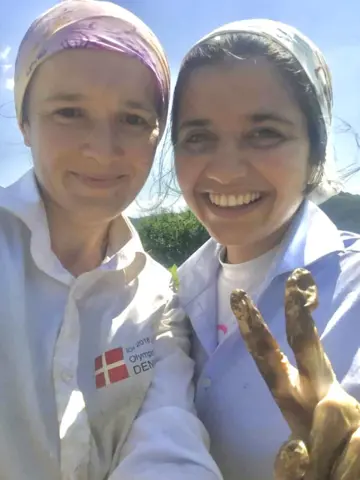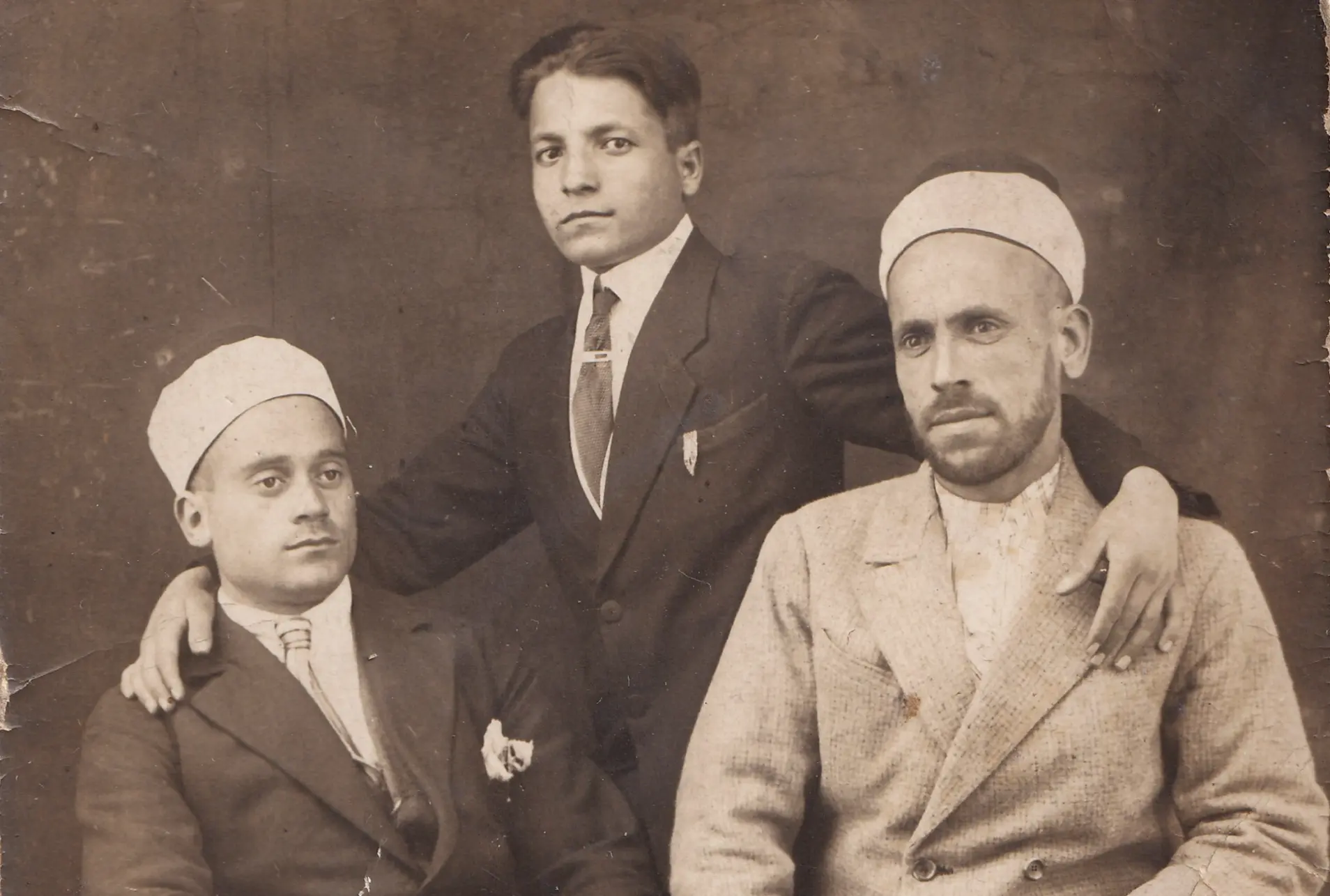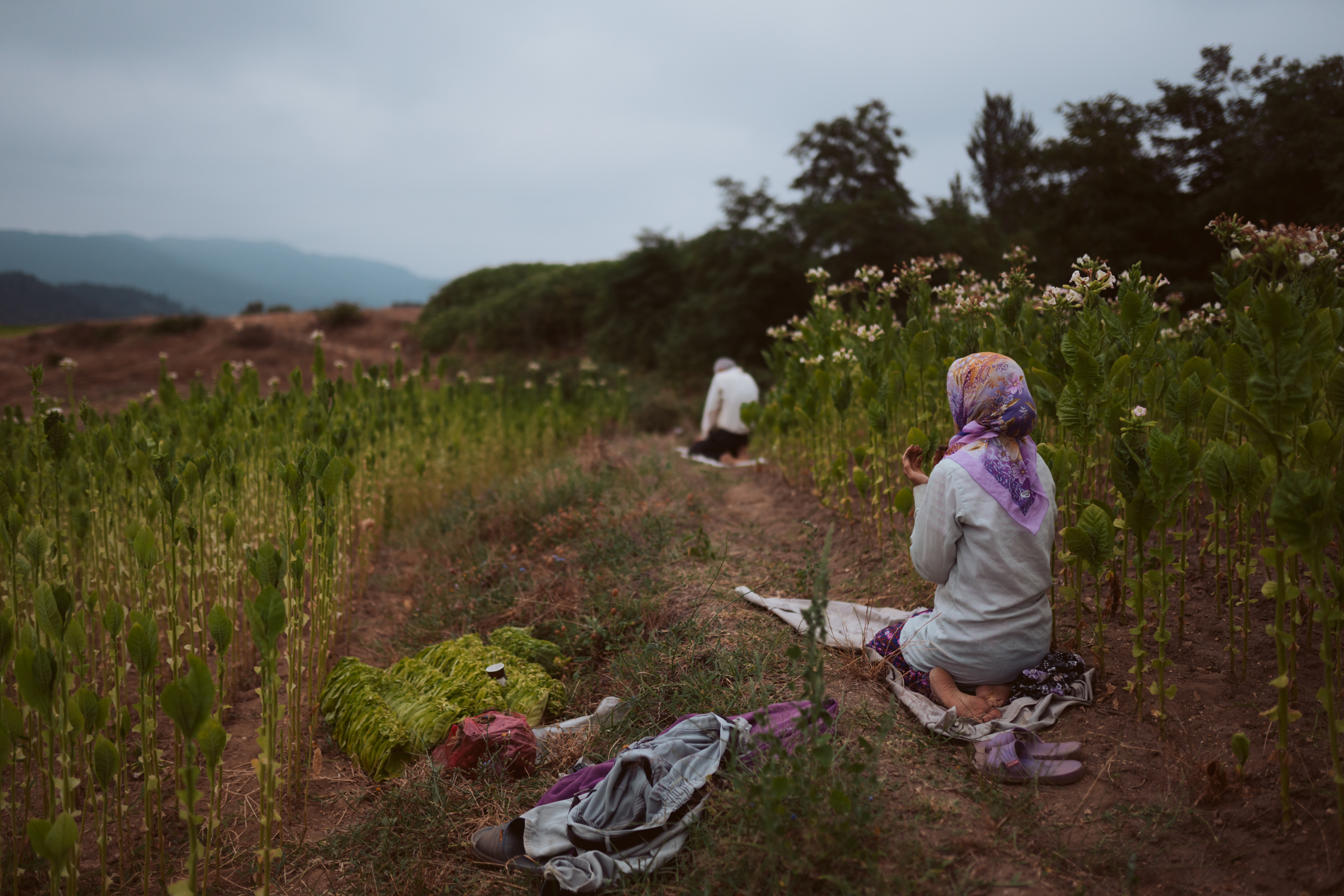As I write these notes, In the Middle is a work in progress. An intimate portrait of a 28-year-old woman who is at a critical juncture in her life, as is the existence of her very remote village in Bulgaria.

Rayme Osman, along with all the young people in her community, is literally and spiritually caught in the middle, balancing dreams of a future with the very survival of Ottoman Turkish culture.
Sredsko is one of the last remaining Ottoman Turkish villages in Bulgaria. For centuries this village was known as Ortacı, Turkish for “in the middle.'' But the Bulgarian government officially translated it into Bulgarian “Sredsko”—a linguistic extension of the systemic erasure of Bulgaria’s native Islamic communities.
Rayme has been working the land since she was eight years old. Land where her ancestors have lived, worked, and died on for centuries. Like most Bulgarian Turks, Rayme’s family grows fine tobacco. If they’re lucky, after months of backbreaking manual labor, her family of three will get the chance to sell their harvest to a foreign (likely American) company for a non-negotiable and extremely low fee.
The audience will be thrown into the world of this village and the painful choices its youth are being forced to make through Rayme.
It’s important to note that the village of Sredsko did not have a paved road or running water until 2007, and that was after years of fighting with the Bulgarian Government. There is no school or grocery store anymore, and the village has never had a restaurant or a doctor. The only way to go to a Bulgarian school, get healthcare, or even bread, is to leave the village and travel for miles, often by foot or by paying one of the local villagers for a spot in his van. This complete lack of investment, the resulting poverty, and the desire to lead a basic dignified life are driving the youth out.
This story of erasure and forced migration is actually my story, too.

My great-grandfather Mustafa worked the same fields Rayme works today. He was also a teacher and a Muslim religious leader ("hoca") in her village. But ethnic cleansing efforts by the Bulgarian authoritarian government ensured that my great grandfather and I share nothing but blood.
In the mid-80s, the Communist Party forced Bulgarian Turks to stop speaking their native Ottoman Turkish. There was a punishment for wearing ethnic clothing, practicing Islam, and, a year before I was born, everyone’s first, middle, and surnames, even on gravestones, were forcibly changed to traditional Bulgarian names. Bulgarian Turks were thrown in work camps, jailed for years without trials, beaten, and murdered.
In 1989, 300,000 Ottoman Turks were deported to Turkey, a country they’d never called home. The elders in Rayme’s village still live with the painful memories from those years.
Although Mustafa passed before I was born, he dreamed of my birth. In his dreams, I was named Meriem. When that day came, hospital staff gave my mother a list of “western sounding” names issued by the government, from which she had to pick. Meriem, the Turkish name for Jesus’ mother, was not on the list. So she named me Michaela. I grew up hearing Turkish whispered by my elder relatives, aware that in the post-communist society we lived in, it was something to be ashamed of. “Clinging” to your culture, to your “old and backward ways,” as the communists had framed it, was still a sin in democratic Bulgaria. I never shared my identity with my friends until I was an adult and lived abroad.
Being severed from your cultural and religious roots comes with a sense of homelessness. And as soon as I could leave Bulgaria, I did. I migrated for a decade from country to country until I settled in the U.S. determined to follow my dream to be a filmmaker. I now live in San Francisco with my husband and eight-month-old son Kai, and I have been taking Turkish class for a year. My cobbled-together life may seem like a success by some metrics, but everything I lack, a sense of belonging, the knowledge of my people, my native language, Rayme still has. And years after the end of the authoritarian regime, she still can’t find a way forward that doesn’t demand the same price.
Will Rayme permanently move to Turkey and fulfill her dream to be a doctor? Or will she settle for a life in the tobacco fields, support her family, and protect their ethnicity and roots? What if these questions went from being Reyme’s private, anguished struggle to an international discussion about the human rights of minorities living under authoritarian regimes and those who are still suffering the consequences of their policies long after their abolishment? This is my motivation for making this film, as a woman, a visual journalist, and a Bulgarian Turk.
The Pulitzer Center was the first to believe in the importance of this story. They supported me through the two-month-long trip as a new mother in a pandemic, and for this flexibility and faith, I’ll be forever grateful.








